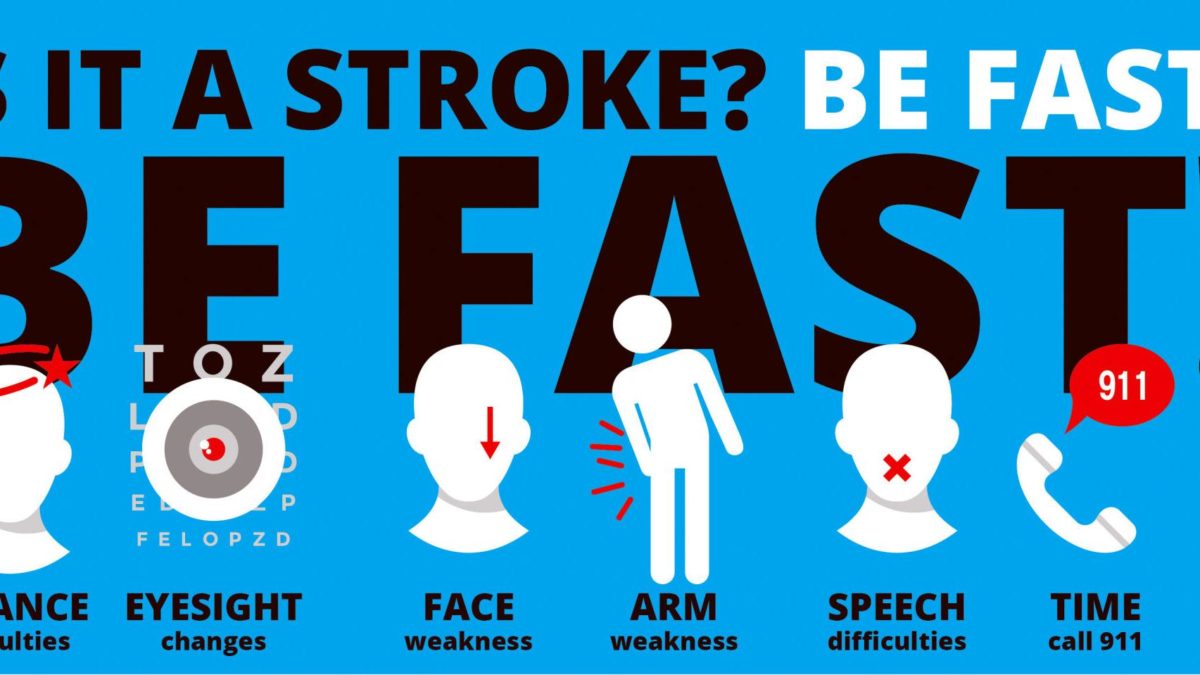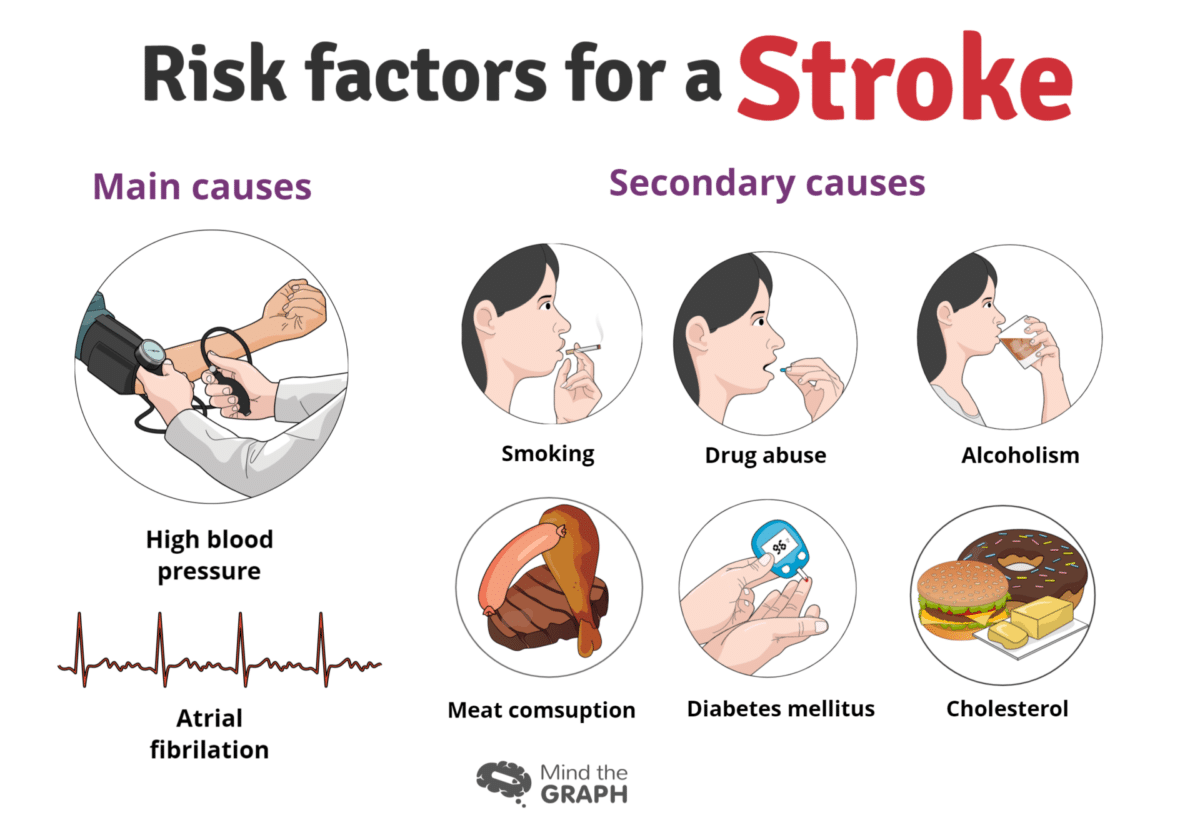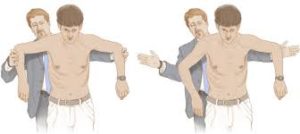I don’t usually write about personal stuff, but the past couple of months have been rough. My mom has had some significant health issues that I’ve alluded to in social media posts. I wanted to share my experience with you all from both the perspective of a daughter and a therapist.
Continue reading “The Other Side”
Category: news
BEFAST: How to Recognize a Stroke
A recent article published by the American Heart Association found that almost 30% of adults under 45 don’t know the 5 main symptoms of a stroke. May is National Stroke Awareness Month here in the United States.
Top 10 Modifiable Stroke Risk Factors
May is Stroke Awareness Month here in the U.S. Up to 80% of strokes are preventable with lifestyle changes: that’s a big number.
Understanding the lifestyle factors you can change is the first step towards stroke prevention. If you’ve already survived a stroke, changing your lifestyle can help reduce the risk of a secondary stroke.
Continue reading “Top 10 Modifiable Stroke Risk Factors”
Dear Joyce,
As if life isn’t bad enough, I gained 18 pounds during the pandemic because I’m going to the refrigerator more often than I should. I live in an apartment and the refrigerator is right there! The problem is, I had a stroke 6 years ago and, from being in so much, it was an unneeded gain.
I can’t think of anything to do other than to stuff my face. I need some motivational advice because the 18 pounds makes my walking and talking sluggish.
Fatter in Frisco
Dear Fatter in Frisco,
Most people in my “bubble” gained weight during the pandemic. What did I do when I put on several pounds and then some?
Try this, compliments of my son who adheres to it every day: I made myself a schedule. Every day from 6pm to around midnight, since most of the eating comes then, I have these “things” to do:
6-7: enjoy leisurely dinner and nothing after; 7-8: reading time; 8-930: writing time when I attempt my 3rd book; 930-1030: answer my email; 1030-11: watch political YouTube videos; 11-12ish: take my meds and bathroom stuff.
Only you can make a commitment to follow the schedule, but it works for me. You have nothing to lose but pounds! Let me know how it works for you.
Dear Joyce,
As if life isn’t bad enough, I gained 18 pounds during the pandemic because I’m going to the refrigerator more often than I should. I live in an apartment and the refrigerator is right there! The problem is, I had a stroke 6 years ago and, from being in so much, it was an unneeded gain.
I can’t think of anything to do other than to stuff my face. I need some motivational advice because the 18 pounds makes my walking and talking sluggish.
Fatter in Frisco
Dear Fatter in Frisco,
Most people in my “bubble” gained weight during the pandemic. What did I do when I put on several pounds and then some?
Try this, compliments of my son who adheres to it every day: I made myself a schedule. Every day from 6pm to around midnight, since most of the eating comes then, I have these “things” to do:
6-7: enjoy leisurely dinner and nothing after; 7-8: reading time; 8-930: writing time when I attempt my 3rd book; 930-1030: answer my email; 1030-11: watch political YouTube videos; 11-12ish: take my meds and bathroom stuff.
Only you can make a commitment to follow the schedule, but it works for me. You have nothing to lose but pounds! Let me know how it works for you.
The Good Part and the Bad Part
The good part about retirement is that you can do a task tomorrow. The bad part about retirement is that you can do a task tomorrow. When you are at work, the demands of the job often dictate what you should do when. You walk in the door and may not have to think about what to do next until you go home. The biggest challenge of retirement for me was having to make decisions about what to do all day long.
One part of the solution for me is having a morning routine – make coffee, do a crossword puzzle, go on the internet, fix breakfast, brush my teeth. This means I do not have to think until I am awake. My 2nd strategy was to make To-Do lists. However, they made me feel guilty because I did so few tasks on the list. Next I tried doing what ever I FEEL like doing. Unless I have a planned outing, I realized it does not matter if I do laundry in the morning, afternoon, or evening. Using emotions instead of logic to guide my choices works better for me. It does not matter why I want to do something. Doing what makes me happy helps maintain my momentum.
Some days I am busy until dinner time. Some days I have a 2 to 3 hour gap with nothing to do. But every day is not a mind-numbing chore from morning to night.
Scared About Losing Peripheral Vision
(This next request comes from the Strokefocus.net Forum. Though it wasn’t addressed to me specifically, the answer is useful and I believe I should share it).
Dear Joyce,
What can I do to improve my peripheral vision? I phoned my opthalmologist (who did my lens replacement some years ago) and was told nothing can be done. Is this correct?
Scared About Losing Peripheral Vision
Dear Scared,
I suggest you read Dr. Heidi Moawad article. She is a neurologist and expert in the field of brain health and neurological disorders. The link is here: https://www.verywellhealth.com/loss-of-peripheral-vision-3146459
The bottom line? It is often common for a stroke to cause a visual field loss because the neural pathway between the eyes and the brain that clarifies what we see is a long one that can definitely be damaged by a stroke.
Look for a second opinion, too. All doctors know different things but, as I say, no doctor knows everything. Perhaps there are exercises you can do to regain that loss.
Though loss of peripheral may be permanent for some people, Dr. Moawad says, “A stroke that causes a loss of peripheral vision can improve over time as the stroke heals and stabilizes.”
We’ll leave it on that very encouraging note! Write again if you regain some or all of your peripheral vision. We’d love to hear about your success. Best wishes!
Scared About Losing Part of Your Vision After Stroke
(This next request comes from the Strokefocus.net Forum. Though it wasn’t addressed to me specifically, the answer is useful and I believe I should share it).
Dear Joyce,
What can I do to improve my peripheral vision? I phoned my opthalmologist (who did my lens replacement some years ago) and was told nothing can be done. Is this correct?
Scared About Losing Peripheral Vision
Dear Scared,
I suggest you read Dr. Heidi Moawad article. She is a neurologist and expert in the field of brain health and neurological disorders. The link is here: https://www.verywellhealth.com/loss-of-peripheral-vision-3146459
The bottom line? It is often common for a stroke to cause a visual field loss because the neural pathway between the eyes and the brain that clarifies what we see is a long one that can definitely be damaged by a stroke.
Look for a second opinion, too. All doctors know different things but, as I say, no doctor knows everything. Perhaps there are exercises you can do to regain that loss.
Though loss of peripheral may be permanent for some people, Dr. Moawad says, “A stroke that causes a loss of peripheral vision can improve over time as the stroke heals and stabilizes.”
We’ll leave it on that very encouraging note! Write again if you regain some or all of your peripheral vision. We’d love to hear about your success. Best wishes!
Brought to you by Strokefocus and one of its associations, Northwest Brain Network
Hope for Paralyzed Arm?
Dear Joyce,
What are the chances of my arm, that hasn’t move at all after a hemorrhagic stroke, getting better? I’ve been doing exercises on and off for 5 years and I occasionally fell.
I was told that I have a three-month window from the date I had the stroke for improvement to happen. Is that the standard now?
Concerned in Dallas
Dear Concerned,
Most occupational therapists who were recently trained starting about five years ago and later don’t say that phrase anymore about windows for improvement. The reason? It’s not necessarily true.
Some people improve constantly whereas others, no matter what they do, improve slowly or, at some future point, stop improving. Putting a very narrow timeline for improvement is just harsh and takes away the motivation to improve. That’s why a common saying is, Don’t give up!
Falling in the biggest barrier for improvement. Aside from getting the initial shock, falling takes people back a step or two. Then people try again with a few days rest but, for example, they aren’t where they were a month ago.
The most important thing you said: “I’ve been doing exercises on and off for 5 years.” Keep doing the exercises that have been given to you constantly as long as you have zero chance of falling. Consistency will sometimes pay off! Or maybe you’re at that point where improvement has stopped.
If you have insurance, or can afford to pay out-of-pocket, see an Occupational Therapist (OT) another time. Maybe there are exercises you haven’t tried yet. If it’s possible, I found that a variety of OTs can have a different spin on the same function.
Time will tell.
Hope for Stroke-Paralyzed Arm?
Dear Joyce,
What are the chances of my arm, that hasn’t move at all after a hemorrhagic stroke, getting better? I’ve been doing exercises on and off for 5 years and I occasionally fell for lack of balance.
I was told that I have a three-month window from the date I had the stroke for improvement to happen. Is that the standard now?
Concerned in Dallas
Dear Concerned,
Most occupational therapists who were recently trained starting about five years ago and later don’t say that phrase anymore about windows for improvement. The reason? It’s not necessarily true.
Some people improve constantly whereas others, no matter what they do, improve slowly or, at some future point, stop improving. Putting a very narrow, spoken timeline for improvement is just harsh and takes away the motivation to improve. That’s why a common saying is, Don’t give up!
Falling in the biggest barrier for improvement. Aside from getting the initial shock, falling takes people back a step or two. Then people try again with a few days rest but, for example, they aren’t where they were a month ago.
The most important thing you said: “I’ve been doing exercises on and off for 5 years.” Keep doing the exercises that have been given to you constantly as long as you have zero chance of falling. Consistency will sometimes pay off! Or maybe you’re at that point where improvement has stopped.
If you have insurance, or can afford to pay out-of-pocket, see an Occupational Therapist (OT) another time. Maybe there are exercises you haven’t tried yet. If it’s possible, I found that a variety of OTs can have a different spin on the same function.
Time will tell.
Brought to you by Strokefocus and one of its associations, Northwest Brain Network









